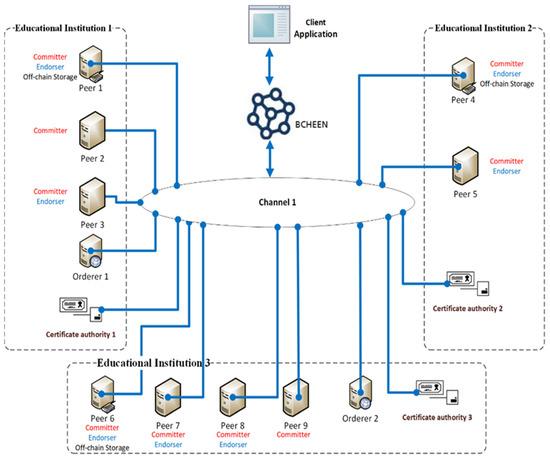Blockchain in Higher education: real-World Case Studies and Impact
Blockchain technology is no longer just a buzzword in the financial sector. It has quickly moved into other domains, and higher education is at the forefront of this digital revolution. From secure student records management to streamlined degree verification and enhanced academic credentials, blockchain in higher education is transforming the way institutions, students, and employers interact. This article explores real-world case studies, outlines the key benefits and challenges, and provides practical tips for integrating blockchain solutions within academia.
Why Blockchain Matters in Higher Education
as higher education institutions grapple with digital transformation, data security, and increasing demand for lifelong learning, blockchain offers solutions that are secure, obvious, and tamper-proof. Blockchain’s decentralized ledger technology enables:
- Verifiable Academic Credentials: Instant, irrefutable proof of academic achievements.
- Reduced Credential fraud: Digital diplomas that are resistant to forgery.
- Streamlined enrollment: seamless student data transfers between institutions.
- Lifelong learning Records: Persistent tracking of skills and certifications.
- Decentralized data Systems: Improved data privacy and ownership for students.
Real-World Case Studies: Blockchain technology in Higher education
Let’s dive into how top universities and organizations are deploying blockchain solutions to address real challenges in higher education.
MIT: Digital Diplomas on the Blockchain
The Massachusetts Institute of Technology (MIT) piloted one of the world’s first projects to provide digital diplomas using blockchain. Their Blockcerts system enables graduates to receive a tamper-proof, verifiable diploma directly to their smartphone. Employers and other institutions can instantly verify credentials without the need for intermediaries,cutting down on processing time and minimizing fraud.
university of Nicosia: Blockchain-Powered Academic Credentials
The University of Nicosia in Cyprus was the world’s first university to issue academic certificates on the Bitcoin blockchain. Students can share secure, publicly verifiable degrees, significantly reducing administrative overhead. today, the university also offers a Master’s in Blockchain and Digital Currency, showcasing their commitment to this transformative technology.
Sony Global Education & IBM: Blockchain Platform for Student Records
Sony Global Education, in collaboration with IBM, has developed a blockchain-based platform for managing and sharing students’ educational records. This system allows students to consolidate their achievements from multiple schools, fostering global academic mobility and simplifying the transfer process between institutions.
The european Qualifications Passport for Refugees
Blockchain technology even plays a humanitarian role. The Council of Europe, in partnership with educational institutions, is piloting a blockchain-based credentials passport for refugees. This initiative helps individuals who have lost access to formal documentation due to displacement to reclaim their academic achievements and continue their education or professional pursuits.
Key Benefits of Blockchain in Higher Education
- Enhanced Security: Immutable records prevent unauthorized modifications or data loss.
- Efficiency: Streamlined records management reduces administrative burdens and costs.
- transparency: All stakeholders have access to the same data in real-time, fostering trust.
- Portability of Credentials: Students can carry and share their credentials globally with ease.
- Enabling Lifelong Learning: Enables learners to accumulate and showcase skills acquired throughout their lives, including micro-credentials and non-traditional achievements.
- Compliance and Privacy: Supports compliance with regulations like GDPR by giving students control over their data.
First-Hand Experiences & Expert Insights
“We found blockchain technology to be a seamless solution for our credentialing process.Not only did it increase trust with employers, but it also empowered students to control and share their learning journey,” says Dr. Maria Ioannou, Program Director at the University of Nicosia.
Many students report that digital, verifiable blockchain-based certificates make the job request process more transparent and credible. Faculty members appreciate reduced paperwork and an overall simplification of record tracking.Additionally, technology staff recognize enhanced security and a reduction in time-intensive manual verifications.
Implementation Tips: How Universities Can Leverage Blockchain
- Start with a Pilot Program: Test blockchain solutions for issuing diplomas,transcripts,or micro-credentials before full-scale adoption.
- Engage Stakeholders: Bring together students, faculty, employers, and IT professionals to design the system.
- Select an Open Standard: Use widely adopted frameworks like Blockcerts for interoperable credentials.
- Prioritize Privacy: Ensure compliance with local and international data protection regulations.
- Promote Digital Literacy: Educate students and staff about the benefits and use of blockchain credentials.
- Partner with Technology Experts: Collaborate with blockchain specialists or EdTech companies for a smooth transition.
Potential Challenges and How to Overcome Them
- Scalability: As usage grows, universities need scalable blockchain platforms that can handle increased volumes of records.
- Interoperability: Institutions should ensure their blockchain records can integrate with other systems domestically and internationally.
- Regulatory Uncertainty: Stay informed on changing regulations regarding data privacy and digital credentialing.
- implementation Costs: Consider the investment required—pilot programs can help manage financial risk.
- Technical Expertise: Upskill IT staff or hire external blockchain consultants to bridge knowledge gaps.
The Future of Blockchain in Higher Education
The potential of blockchain in higher education stretches far beyond digital diplomas. Expect to see:
- Smart Contracts automating tuition payments or scholarship disbursals.
- Global Talent Networks linking verified credentials with job opportunities.
- Decentralized Learning Platforms where learners accumulate micro-credentials across institutions and borders.
- Increased Trust between students, employers, and educational providers.
As the blockchain revolution in higher education continues, institutions that embrace this innovation will be positioned as leaders in digital transformation and lifelong learning enablement.
Conclusion: The Impact of Blockchain on Higher Education
Blockchain technology is rapidly reshaping the landscape of higher education.Universities and colleges implementing blockchain solutions reap the benefits of secure, efficient, and portable credentialing systems. Real-world case studies prove that blockchain isn’t just a futuristic idea—it’s a practical technology solving today’s pressing educational challenges. By embracing blockchain, higher education institutions empower students, reduce administrative burden, and build digital trust for the future.
Are you ready to explore the next phase of digital transformation in higher education? Stay ahead of the curve by investing in blockchain-powered solutions and join the global movement toward secure, decentralized learning.

